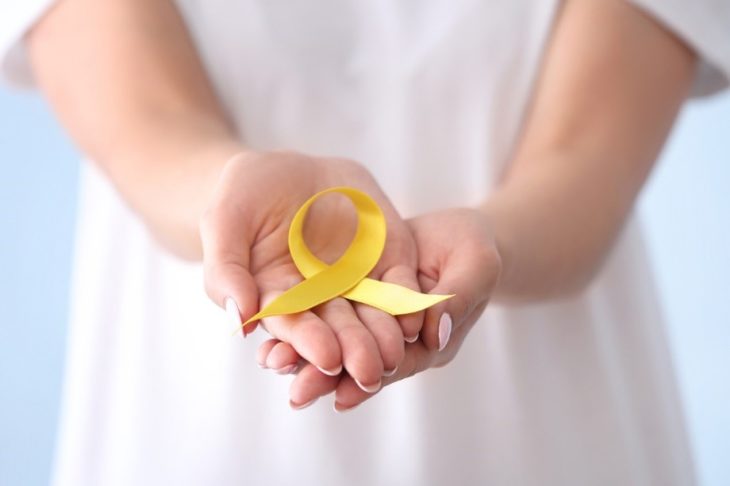
Roughly 5 million women in the United States suffer from a condition known as endometriosis. For some the symptoms are severe, causing crushing pain during your period, making intercourse very uncomfortable, and making you feel wiped out for most of the month. In other cases, about 20 percent, women present with no discernible, or uncomfortable, symptoms.
Although it is not, in itself, classified as an immune disorder, endometriosis seemingly puts those who suffer from it at a higher risk for autoimmune disorders, such as fibromyalgia, rheumatoid arthritis, and hypothyroidism. The inflammatory response triggered by endometriosis is believed to cause an imbalance in the immune system.
Although much is already known about endometriosis, it can still be difficult to understand. There are plenty of myths and misconceptions about this disease which only add to the confusion. Here we will give you the facts about endometriosis and how it impacts your fertility.
Exactly What is Endometriosis?
Endometriosis is a condition that occurs when tissue similar to that which makes up the lining of the uterus, is found growing in other parts of the pelvic region. This tissue attaches, surrounds, and irritates the area outside of the uterus, including the ovaries, fallopian tubes, intestines and bladder. As the tissue grows it causes inflammation and scarring, causing pain and interfering with natural reproductive function.
Endometriosis tissue is affected by the same hormones that cause your uterus to shed its lining as in your monthly period. Sometimes, the tissue that causes endometriosis travels out of the fallopian tube and into the abdominal area, where it attaches to other organs. As it responds to the stimulating hormones it will shed, causing the organs to bleed and become inflamed.
How to Know if You Have Endometriosis
As mentioned above, endometriosis can cause painful and heavy periods, mid-cycle pain, breakthrough bleeding and spotting at times other than your normal menstrual period. Depending on the location of the tissue, endometriosis can also cause intercourse to become painful and uncomfortable, and make bowel movements and urination difficult. A feeling of fullness, nausea, and bloating may accompany endometriosis.
Any pain, beyond occasional menstrual cramps, or mid-month twinges, is not normal and you should discuss your concern with your physician. Once you alert your doctor to your symptoms they will start with a pelvic exam to feel for cysts or scar tissue. Your doctor will likely perform an ultrasound which is the best diagnostic tool to find certain cysts associated with the condition.
A laparoscopy is can also be useful in finding endometriosis, determining location, and assessing how advanced the condition may be. For some women endometriosis produces no symptoms. In fact, the inability to conceive is often the first and only symptom.
Endometriosis and Fertility
There’s no doubt endometriosis has a huge impact on your fertility. Approximately, 30% to 50% of women diagnosed as infertile have endometriosis. There are multiple ways in which the condition can interfere with your ability to conceive.
Your body’s inflammatory response to the abnormal tissue growth interferes with the ability of the egg to move into the fallopian tube. Endometriosis at or near the fallopian tubes can cause swelling, and, eventually, scarring, which not only prevent the fertilized egg from implanting in the uterus, but can increase the risk for an ectopic pregnancy. This is when the fertilized egg attaches and begins to grow in the fallopian tube. It cannot result in a viable pregnancy and, moreover, can be life-threatening.
Additionally, the inflammation-response associated with endometriosis can cause cysts to develop on the ovaries. These cysts can create adhesions and scar tissue, prohibiting normal ovarian function. Inflammation can make for a hostile environment, attacking sperm and eggs and preventing ovulation. This can be compounded by autoimmune disorders, in some cases.
How Endometriosis Is Treated
If endometriosis pain is intense your physician may suggest birth control pills. The hormone estrogen is suppressed when you take birth control pills and this prevents growth of lesions which are already present, as well as any new lesions from developing.
For more advanced cases of endometriosis surgery is often the best option. There are different surgical procedures depending on the location of your endometriosis, for instance, if it is blocking your fallopian tubes, causing cysts to develop on or in your ovaries, or forming adhesions and lesions on other organs.
Fertility Options for Endometriosis
IVF, by far, offers women who suffer from endometriosis the best chance for pregnancy. The presence of ovarian cysts can greatly reduce the viability of the egg supply, and for those women IVF is often the only option. Of course every case of endometriosis is unique, and your response to fertility treatment is dependent upon the degree of damage to your reproductive system. If you suspect you may have endometriosis, contact your physician as soon as possible to schedule an appointment.










